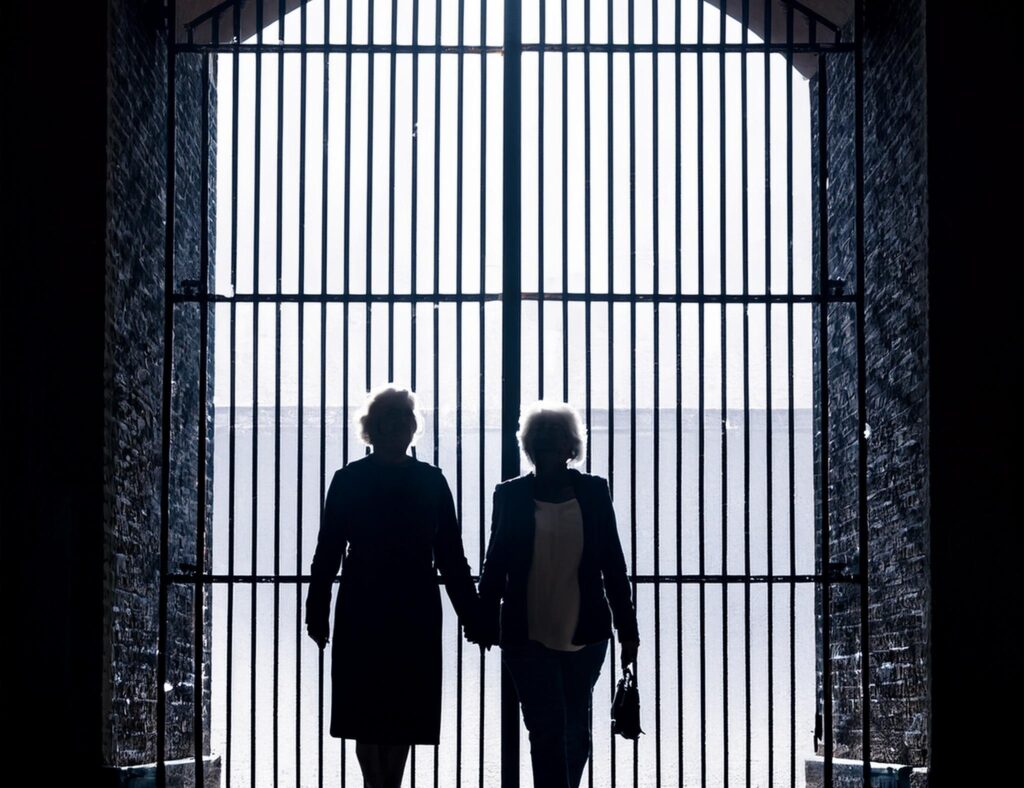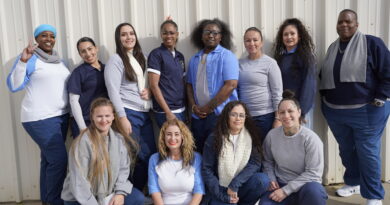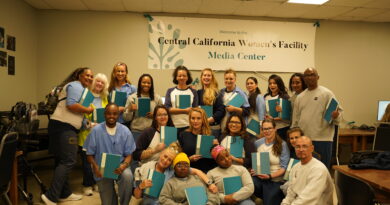Mothers and Daughters: Doing time at the same time
Any woman could be a mother in the biological sense, but it takes a special kind of person to be a mom.

In women’s prisons, there are many moms, since incarcerated folks form pseudo-families who meet the basic needs of Maslow’s hierarchy in a unique way. They cook and eat together, share happy moments and cry in the sad ones, platonic cuddling and stern encouragements to program and go home. These pseudo-families bring people together that normally would not interact in the free world.
There are also a handful of biological mothers and daughters who are serving their sentences concurrently at Central California Women’s Facility (CCWF).
One of those mothers is Noava Martinez, who has been serving life without the possibility of parole (LWOP) since 2009.
Recently, Martinez found out that her biological daughter Sabrina was in county jail facing a life sentence. After speaking with Martinez and listening to her story of motherhood, I learned that she didn’t raise Sabrina. Martinez was in and out of her daughter’s life until her arrest, when Sabrina was 10 years old. Martinez had no real connection to Sabrina other than being her mother.
Still, the news of her daughter’s arrest devastated her. When Martinez was told that Sabrina was on her way to CCWF after being sentenced, Martinez experienced multi-layered fears. What if she gets into a situation or in a room where she is being bullied? What would she do as her mother? With all of these scenarios running through her mind, Martinez sent her daughter a message through friends not to come to CCWF because Martinez wants to go home.
Martinez said it was a hard dilemma. Martinez has been working hard on herself for the past eight years. Knowing her daughter was involved in drugs and toxic relationships, Martinez had to put years of self-help to the test. She had no choice but to let Sabrina know she had changed from the mother she remembered or had heard about. She was no longer gang banging, using drugs or fighting.
This would be an awkward conversation but it was one she knew was necessary. Martinez has taken her rehabilitation seriously so she can one day rejoin her family. How would this conversation go, what would either of them say?
Sabrina made it to the prison’s reception center in April and by chance got to see her mother in the hospital, one of the only places residents from different yards interact, while on medical appointments. They embraced and cried tears of joy as neither of them knew what to expect from the other. In that moment life seemed a little kinder. As planned, Martinez told her daughter she was a changed person.
Surprised by her mother’s changes, Martinez said that Sabrina assured her she was going to stay out of trouble and told her not to worry. Her daughter received 18 years with half, meaning she would have to do at least nine years. Martinez wonders how all of this will play out. She plans to guide her daughter as best she can without interrupting her own program.
Having done 22 years, Martinez was concerned that those who would have helped keep her daughter on the right path had all gone home. She talked to custody to see if her daughter could be housed on the facility with her. She still has fears even though she knows that Sabrina can take care of and defend herself. A mother’s instinct is to protect her child.
Martinez hopes to use the time she does have with her daughter to get to know her and give her answers she needs to heal. In giving her daughter that, she believes she can then start forgiving herself for not being there for Sabrina as her mother. Martinez wants Sabrina to know that she never stopped thinking about her and she has always loved her. She desires to show her daughter what she’s doing today,
“I hope she sees the difference so she can make a difference and break the cycle,” Martinez said.



